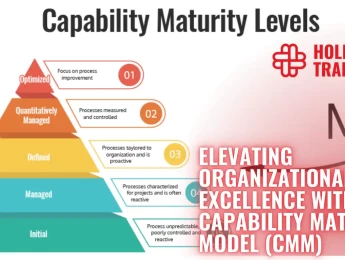- Table of Contents
- Introduction
- What Is the Difference Between the Private Sector and the Public Sector?
- Motives
- Ownership
- Competition
- Funding
- What Are the Pros of Working in the Public Sector?
- Sense of Purpose
- Job Stability
- Comprehensive Benefits
- Professional Development
- Retirement Security
- Cons of Working in the Public Sector
- Bureaucratic Processes
- Salary Constraints
- Limited Flexibility
- Political Influence
- About Public Sector Management
- Benefits of Public Sector Management
- Strategic Resource Allocation
- Transparent Governance
- Efficient Service Delivery
- Economic Stability and Growth
- Social Equality
- Environmental Sustainability
- Crisis Management
- The Process of Public Sector Management
- 1- Strategic Planning
- 2- Policy Formulation
- 3- Resource Allocation
- 4- Performance Monitoring
- 5- Legal and Regulatory Compliance
- 6- Stakeholder Engagement
- 7- Continuous Improvement
- Conclusion
Introduction
In our complex and interconnected world, the role of public sector management is of utmost importance. While the private sector is known for its entrepreneurial spirit and profit-driven motives, the public sector stands tall as the guardian of the common good, representing the interests of the society at large. Public sector management is the art of efficiently and effectively steering the vast machinery of government to serve the needs of its citizens. In this blog post, we will explore the key differences between the private and public sectors, the pros and cons of working in the public sector, and delve into the invaluable benefits of public sector management in fostering societal progress.
What Is the Difference Between the Private Sector and the Public Sector?
The private sector and the public sector are two distinct realms that coexist within any nation's economic landscape. The primary difference lies in their underlying principles and objectives:
Motives
The private sector's primary driving force is profit. Businesses within this sector aim to maximise returns for shareholders and investors, emphasising efficiency, innovation, and competition to achieve financial success. This profit-oriented motive often results in a dynamic and competitive marketplace where companies strive to gain a competitive edge and expand their market share.
Conversely, the public sector operates with a service-oriented motive. Its focus is not primarily on generating profits but on providing essential services and addressing societal needs. This fundamental difference in motive is rooted in the public sector's role as the guardian of the common good, with a responsibility to ensure the well-being of all citizens.
Ownership
Ownership structures distinguish the private and public sectors. Private sector entities are owned and controlled by individuals, organisations, or shareholders who seek to maximise their financial returns. This ownership model often leads to decentralised decision-making processes, with businesses adapting quickly to market demands.
On the other hand, public sector entities are owned by the government and, by extension, the citizens. This collective ownership emphasises the public sector's responsibility to serve society's broader interests. Decisions within the public sector are typically subject to democratic processes, with government officials representing the will and needs of the people.
Competition
Competition is a hallmark of the private sector, driving businesses to innovate, improve efficiency, and deliver high-quality products and services. Companies vie for market share and dominance, fostering an environment where consumer preferences and demands are pivotal in shaping business strategies.
In contrast, the public sector may not operate under the same competitive dynamics. The government's essential services, such as law enforcement, public education, and national defence, may not face direct competition. This absence of competition in critical areas ensures equitable access to essential services for all citizens, irrespective of socio-economic factors.
Funding
Private sector entities raise capital through various means, including investments from individuals or organisations and loans from financial institutions. A business's profitability determines its ability to attract investment and secure loans, influencing its capacity for expansion and innovation.
In contrast, the public sector is funded through tax revenues and government allocations. Taxation serves as a means for citizens to contribute to financing government activities. This funding model emphasises accountability, as the government must efficiently allocate resources to address societal needs while ensuring transparency in financial matters.
Understanding these fundamental differences lays the groundwork for comprehending each sector's unique dynamics. The private sector's profit motive and competitive landscape contrast sharply with the public sector's service-oriented goals and collective responsibility for societal well-being. These distinctions underscore the importance of effective public sector management in navigating the complexities of governance and ensuring the fulfilment of societal needs.
Table: key differences between the private sector and the public sector
Aspect | Private Sector | Public Sector |
Motives | Driven by profit. Aims to maximise shareholder and investor returns. | Driven by service. Focuses on providing essential services to the public. |
Ownership | Owned by individuals, organisations, or shareholders seeking financial gain. | Owned by the government on behalf of citizens. |
Competition | Operates in a competitive market; innovation and efficiency are key. | May lack direct competition; ensures equitable service access for all. |
Funding | Funded through private investment and loans based on profitability. | Funded through taxes and government allocations. |
What Are the Pros of Working in the Public Sector?
Working in the public sector offers a plethora of advantages that attract individuals seeking meaningful and stable careers:
Sense of Purpose
One of the most rewarding aspects of working in the public sector is the profound sense of purpose derived from serving the community. Public sector employees often find fulfilment in knowing that their daily efforts contribute to the betterment of society. Whether working in education, healthcare, law enforcement, or any other public service, individuals in the public sector play a direct role in addressing the needs of their fellow citizens.
This sense of purpose can be a powerful motivator, fostering a deep commitment to one's work and instilling a strong sense of civic duty. Knowing that their efforts contribute to the greater good provides public sector employees with a unique source of job satisfaction beyond financial remuneration.
Job Stability
The public sector is renowned for its resilience to economic fluctuations, providing a high level of job stability even during times of recession. This stability is a significant draw for individuals seeking long-term career security. Unlike private sector industries that may experience downsizing or restructuring in response to economic challenges, the public sector tends to maintain a consistent demand for its services.
Public sector employees often benefit from a sense of job security that allows them to plan for the future confidently. This stability is particularly valuable in uncertain economic climates, offering a degree of reassurance and peace of mind that may be elusive in more volatile private sector industries.
Comprehensive Benefits
Public sector jobs typically offer generous benefit packages, a key factor contributing to their appeal. These benefits often include health insurance, retirement plans, and paid time off, enhancing the overall compensation package for public sector employees.
Health insurance coverage is particularly valuable, providing financial security during medical emergencies and ensuring access to necessary healthcare services. Retirement plans, which are often well-structured in the public sector, contribute to long-term financial stability for employees, offering a reliable source of income during their retirement years. Additionally, paid time off enables employees to achieve a better work-life balance, promoting overall well-being.
Professional Development
Public sector organisations tend to strongly emphasise professional development and training programs. This commitment to ongoing learning empowers employees with the necessary skills to excel in their roles and grow within the organisation. Public sector professionals often have access to workshops, seminars, and educational opportunities that contribute to their personal and career advancement.
This focus on professional development benefits individual employees and enhances the overall capacity and efficiency of public sector agencies. A well-trained and skilled workforce is better equipped to address the evolving challenges of governance, ensuring that public sector services are delivered with a high degree of competence and expertise.
Retirement Security
Many public sector jobs offer well-structured pension plans, ensuring financial security for retirees. This commitment to retirement benefits is a significant advantage for individuals considering a career in the public sector. Ensuring a reliable pension plan adds a layer of financial stability and peace of mind, allowing employees to retire confidently in their financial well-being.
The retirement security offered by public sector pension plans reflects the government's commitment to supporting its workforce throughout their entire careers. This commitment contributes to a positive and supportive work environment, where employees feel valued and secure in their long-term financial planning.
In summary, the pros of public sector work extend beyond conventional employment considerations. The sense of purpose, job stability, comprehensive benefits, emphasis on professional development, and retirement security collectively make public sector employment appealing for those seeking a fulfilling and stable career path. These factors underscore the significance of public sector roles in fostering societal well-being and progress.
Cons of Working in the Public Sector
While the public sector offers numerous advantages, it is essential to consider some of the challenges associated with working in this domain:
Bureaucratic Processes
One prominent challenge in the public sector is the prevalence of bureaucratic processes. Due to the nature of government operations and the need to adhere to legal and regulatory frameworks, decision-making processes can be slower and more cumbersome than the private sector. This bureaucratic nature can lead to delays in implementing initiatives and responding to changing circumstances.
The layers of approval and extensive documentation required in the public sector can sometimes hinder organisations' agility and responsiveness. Employees may find themselves navigating complex procedures, which could result in frustration and a sense of inefficiency.
Salary Constraints
While public sector jobs offer stability, they may not always match the salary levels found in the private sector, particularly in high-demand fields such as technology and finance. The salary constraints in the public sector can be a deterrent for individuals seeking competitive compensation or those with specialised skills that are highly valued in the private industry.
This salary disparity may lead to challenges in attracting and retaining top talent, especially in fields where expertise is critical. It can also impact employee morale and motivation, as individuals may perceive their compensation as not commensurate with their skills or the demands of their roles.
Limited Flexibility
Government regulations and policies may restrict the flexibility of public sector employees, hindering innovation and creativity in some cases. Adherence to established procedures and compliance with regulations can create a structured work environment, but it may also limit the ability to adapt quickly to changing circumstances.
Innovative solutions and agile responses to challenges are sometimes impeded by the rigid structures inherent in the public sector. This lack of flexibility can be a source of frustration for employees who are eager to implement new ideas or streamline processes but are constrained by bureaucratic and regulatory constraints.
Political Influence
Public sector workers may face external pressure from politicians or interest groups, which can impact decision-making and resource allocation. Political influence in the public sector introduces an additional layer of complexity, as decisions may be swayed by political considerations rather than solely based on the merit of a particular initiative.
This external pressure can compromise the autonomy of public sector agencies, potentially leading to decisions that prioritise political interests over society's broader needs. Navigating these political dynamics can be challenging for public sector employees, requiring a delicate balance between adhering to professional principles and responding to external pressures.
In short, the cons of working in the public sector highlight some of the challenges individuals may encounter in this professional realm. While the sense of purpose, stability, and comprehensive benefits are significant advantages, potential frustrations related to bureaucratic processes, salary constraints, limited flexibility, and political influence should be carefully weighed by those considering a career in the public sector. Addressing these challenges requires a commitment to continuous improvement and adaptability within public sector organisations to create a work environment that fosters stability and innovation.
About Public Sector Management
Public sector management encompasses a wide range of activities designed to optimise the efficiency and efficacy of government operations. This discipline involves strategic planning, policy formulation, resource allocation, performance monitoring, and ensuring compliance with legal and regulatory frameworks, which we will discuss in detail in a minute. The role of public sector managers is critical in bridging the gap between policymakers and the implementation of initiatives that drive societal progress.
Benefits of Public Sector Management
With a deeper understanding of the differences between the private and public sectors and the pros and cons of working in the latter, let us now delve into the remarkable benefits of public sector management. This critical discipline is key to unlocking societal advancements and empowering governments to serve their communities better.
Strategic Resource Allocation
Public sector managers allocate limited resources to various government programmes and projects. Effective resource management ensures that funding is channelled towards initiatives that address pressing societal needs, such as education, healthcare, infrastructure, and social welfare.
Transparent Governance
Public sector management strives to uphold transparency and accountability in government operations. Transparent decision-making processes and open communication foster trust between citizens and their government, promoting a healthy democracy.
Efficient Service Delivery
Through strategic planning and process optimisation, public sector management enhances the delivery of essential services. Timely and efficient services, such as healthcare, transportation, and public safety, contribute to citizens' overall well-being and satisfaction.
Economic Stability and Growth
Public sector management is crucial in maintaining economic stability and fostering sustainable growth. By implementing fiscal policies and regulations, public sector managers can stabilise inflation, manage public debt, and promote investments that stimulate economic prosperity.
Social Equality
Public sector management initiatives are essential for bridging social disparities and promoting inclusivity. Public sector managers contribute to reducing poverty, promoting education, and uplifting marginalised communities by ensuring equitable distribution of resources and opportunities.
Environmental Sustainability
Public sector management also significantly impacts environmental conservation and sustainability. Through policies and regulations, government entities can encourage sustainable practices, protect natural resources, and combat climate change.
Crisis Management
Effective public sector management becomes even more critical in times of crisis, such as natural disasters or pandemics. Coordinated disaster response efforts and the provision of emergency services are pivotal in mitigating the impact of calamities on society.
The Process of Public Sector Management
Public sector management involves a comprehensive and dynamic process to optimise government operations' efficiency and effectiveness. This multifaceted discipline encompasses several key steps and activities, each crucial in ensuring the successful implementation of government policies and the delivery of essential services. Let’s delve into the process of public sector management, shedding light on the intricacies that guide the functioning of government entities.
1- Strategic Planning
Strategic planning is at the core of public sector management. This involves setting long-term goals, defining priorities, and outlining the steps necessary to achieve them. Public sector managers collaborate with policymakers to develop strategic plans that align with the government's vision and address society's pressing needs. These plans serve as roadmaps, providing a clear direction for resource allocation, programme development, and service delivery.
Strategic planning also involves forecasting future challenges and opportunities, allowing public sector managers to address emerging issues and adapt to changing circumstances proactively. This forward-looking approach is essential in a rapidly evolving world, where governments must be agile in responding to complex and interconnected challenges.
2- Policy Formulation
Public sector management includes the critical function of policy formulation. This process entails developing and refining policies that guide government actions and decision-making. Public sector managers collaborate with subject matter experts, stakeholders, and policymakers to create policies that align with the government's objectives and adhere to legal and ethical standards.
Policy formulation requires a deep understanding of societal needs, thorough research, and considering potential impacts. Public sector managers must navigate the intricate web of political, social, and economic factors influencing policy development. The goal is to create policies that are effective in addressing current challenges and adaptable to future changes in the political and social landscape.
3- Resource Allocation
Efficient resource allocation is a cornerstone of public sector management. Public sector managers are responsible for distributing limited financial, human, and technological resources across various government programmes and projects. This involves making strategic decisions to ensure that resources are directed toward initiatives that align with government priorities and significantly impact societal well-being.
Resource allocation requires a careful balance between competing needs and demands. Public sector managers must assess the cost-effectiveness of programmes, evaluate their potential benefits, and consider the long-term implications of resource distribution. Through this process, they contribute to the optimal use of taxpayer money, promoting transparency and accountability.
4- Performance Monitoring
Public sector management involves continuous performance monitoring to assess the effectiveness of government initiatives. Public sector managers establish key performance indicators (KPIs) and metrics to evaluate the impact of policies and programmes. Regular monitoring allows for data-driven decision-making, enabling adjustments to be made to strategies and resource allocation based on real-time feedback.
Performance monitoring involves collecting and analysing data related to service delivery, programme outcomes, and the overall efficiency of government operations. Public sector managers use this information to identify areas of improvement, celebrate successes, and ensure that government activities align with the established goals and objectives.
KPI | Description |
Citizen Satisfaction | Measure public perception of government services. |
Budget Compliance | Assess adherence to fiscal plans and regulations. |
Policy Effectiveness | Evaluate impact of policies on societal objectives. |
Service Efficiency | Gauge efficiency in delivering essential services. |
Stakeholder Engagement | Monitor collaboration with diverse stakeholders. |
Table 1: Public sector management KPIs
5- Legal and Regulatory Compliance
Public sector management operates within a framework of laws and regulations. Managers are responsible for ensuring that government activities adhere to legal and ethical standards. This involves staying abreast of changes in legislation, monitoring compliance with established regulations, and mitigating legal risks.
The legal and regulatory compliance aspect of public sector management extends to issues such as data protection, transparency in decision-making, and adherence to human rights principles. Public sector managers collaborate with legal experts to navigate the complex legal landscape, ensuring that government actions withstand legal scrutiny and ethical considerations.
6- Stakeholder Engagement
Public sector management recognises the importance of engaging with various stakeholders, including citizens, businesses, non-profit organisations, and other government agencies. Stakeholder engagement is a continuous process that involves seeking input, gathering feedback, and fostering collaborative relationships.
Public sector managers employ communication strategies to keep citizens informed about government initiatives and solicit their input in the decision-making process. Engaging with stakeholders ensures that public sector management remains responsive to the community's diverse needs and expectations.
7- Continuous Improvement
The process of public sector management is iterative and involves a commitment to continuous improvement. Public sector managers analyse the outcomes of policies and programmes, identify areas for enhancement, and implement changes to optimise efficiency and effectiveness. This commitment to continuous improvement ensures that government operations remain adaptive and responsive to society's evolving needs.
Public sector managers often embrace innovation and technology to enhance service delivery and streamline administrative processes. This proactive approach to improvement is essential for fostering a culture of excellence within government agencies and maximising the positive impact on citizens' lives.
In summary, the process of public sector management is a dynamic and multifaceted undertaking. From strategic planning and policy formulation to resource allocation, performance monitoring, and stakeholder engagement, each step contributes to the overall goal of serving the public interest. Public sector managers navigate the complexities of governance, working tirelessly to ensure that government activities are efficient, transparent, and aligned with the evolving needs of society.
Conclusion
The benefits of public sector management extend far beyond administrative functions. Public sector managers are the architects of societal advancements, ensuring that government resources are utilised efficiently and ethically to meet citizens' needs. From fostering economic growth and social equality to promoting environmental sustainability and crisis management, public sector management plays a pivotal role in shaping the future of our communities.
In a world where collaboration between the private and public sectors is becoming increasingly important, effective public sector management is a driving force in creating a harmonious and prosperous society. As we navigate the challenges and opportunities of the modern era, investing in the development and enhancement of public sector management will undoubtedly yield significant dividends for the betterment of all, and if you're interested in mastering the art of public sector management, explore our course, ‘Public Sector Performance Management’ to take the next step towards empowering positive change in your community.
























